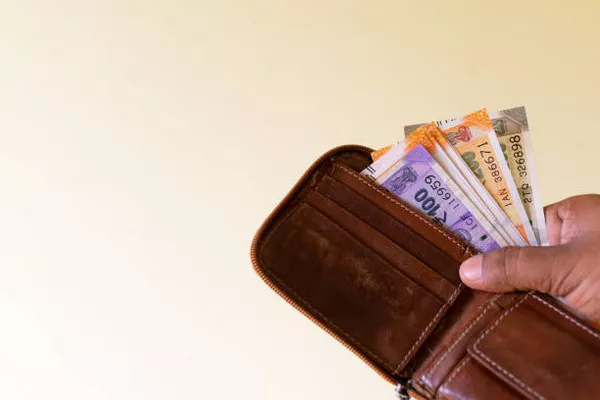Currency conversion is a common financial transaction for individuals engaging in international travel, business, or investment. For those in India looking to convert rupees to dollars, understanding the various methods, factors influencing exchange rates, and practical considerations is essential. In this article, we will provide a comprehensive guide on how to convert rupees to dollars in India, exploring the mechanisms involved, available options, and tips for optimizing the currency exchange process.
Understanding Exchange Rates:
Before delving into the practical aspects of currency conversion, it’s crucial to understand the concept of exchange rates. Exchange rates represent the value of one currency in terms of another and are influenced by a variety of factors.
Factors Influencing Exchange Rates:
Exchange rates are dynamic and are influenced by economic indicators, interest rates, geopolitical events, and market sentiment. The Reserve Bank of India (RBI) and global market forces contribute to the determination of the rupee-to-dollar exchange rate.
Real vs. Nominal Exchange Rates:
Real exchange rates take into account changes in price levels, providing a more accurate representation of the actual purchasing power of currencies. Understanding both real and nominal exchange rates is important for assessing the true value of your currency.
Methods for Converting Rupees to Dollars:
Authorized Banks and Financial Institutions:
One of the most common methods for currency conversion is through authorized banks and financial institutions. These entities facilitate over-the-counter transactions where individuals can exchange rupees for dollars at prevailing exchange rates.
Currency Exchange Counters:
Currency exchange counters are commonly found at international airports, major hotels, and commercial centers. While convenient, these services may charge higher fees or offer less favorable exchange rates.
Online Currency Platforms:
The advent of online currency platforms has revolutionized the way individuals convert rupees to dollars. Online platforms often offer competitive rates, transparent fee structures, and the convenience of executing transactions from the comfort of your home.
Forex (Foreign Exchange) Brokers:
Forex brokers cater to individuals and businesses engaged in currency trading. While primarily designed for trading, some brokers offer currency conversion services with competitive rates. It’s important to choose a reputable broker with regulatory compliance.
Considerations for Currency Conversion:
Timing of the Transaction:
Exchange rates are subject to fluctuations, and the timing of your currency conversion can impact the amount of dollars you receive. Monitoring market trends and economic indicators can help you make informed decisions on when to execute your conversion.
Transaction Fees and Charges:
Different currency conversion methods come with varying transaction fees and charges. Banks and currency exchange counters may have higher fees, while online platforms and certain forex brokers often provide more cost-effective options.
Hidden Costs:
In addition to visible transaction fees, it’s essential to be aware of any hidden costs, such as margin rates applied by service providers. Understanding the full cost of the transaction ensures transparency and helps you make financially prudent decisions.
Volume of Currency:
The volume of currency you intend to convert can also impact the exchange rate. Larger transactions may qualify for preferential rates or reduced fees, so it’s worthwhile to inquire about bulk conversion options.
Security and Reliability:
When opting for any currency conversion method, prioritize security and reliability. Choose authorized banks, reputable online platforms, or regulated forex brokers to ensure the safety of your financial transactions.
Practical Steps for Converting Rupees to Dollars:
Research Current Exchange Rates:
Before initiating a currency conversion, research the current exchange rates. Online financial news portals, central bank websites, and currency converter tools provide real-time information on prevailing rates.
Choose the Right Service Provider:
Evaluate the available options for currency conversion, considering factors such as fees, exchange rates, and convenience. Choose a service provider that aligns with your preferences and financial objectives.
Verify Identification Requirements:
When conducting currency transactions through banks or financial institutions, be prepared to provide valid identification. This is a standard procedure to comply with regulatory requirements and ensure the legitimacy of the transaction.
Understand Applicable Fees:
Clearly understand the fees associated with the chosen method of currency conversion. While some platforms may offer competitive rates, they may have higher transaction fees. Factor these costs into your decision-making process.
Consider Hedging Options:
For individuals or businesses exposed to currency risk, exploring hedging options can be beneficial. Forward contracts, options, and futures contracts are financial instruments that can help mitigate the impact of currency fluctuations.
Track Market Trends:
Keep an eye on market trends and economic indicators that may influence exchange rates. This information can guide your decision on the optimal timing for currency conversion.
Plan for International Travel:
If you’re converting rupees to dollars for international travel, plan ahead to ensure you have sufficient funds in the required currency. Factor in potential expenses, including accommodation, transportation, and daily expenses.
Utilize Online Platforms Wisely:
When using online currency platforms, exercise caution and choose reputable providers. Ensure the platform employs secure encryption methods to protect your financial information.
Tax Implications:
Currency conversion may have tax implications depending on the nature of the transaction and applicable tax laws. It’s advisable to consult with a tax professional to understand any tax liabilities associated with converting rupees to dollars, especially for larger transactions or business-related activities.
See Also: Indian Rupee Denominations: A Comprehensive Guide
Conclusion:
Converting rupees to dollars in India involves navigating a dynamic financial landscape with multiple options and considerations. Whether you’re a traveler, investor, or business entity, understanding the intricacies of currency conversion is essential for optimizing your financial transactions. By staying informed about exchange rates, choosing the right service providers, and considering factors like fees and security, you can navigate the process with confidence. The Indian rupee, with its storied history, continues to play a central role in international finance, and understanding how to convert it to dollars empowers individuals and businesses to engage effectively in the global economy.


